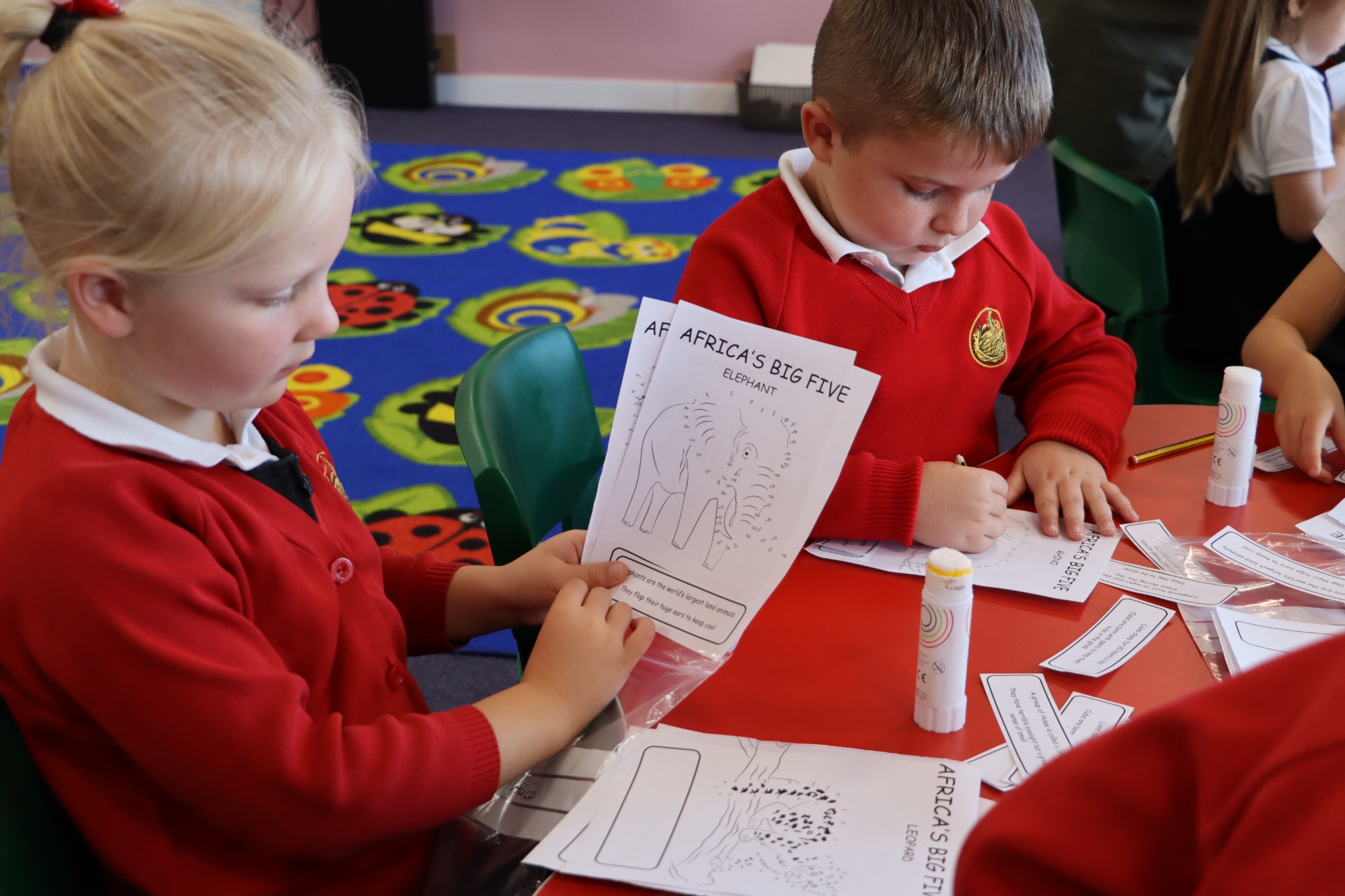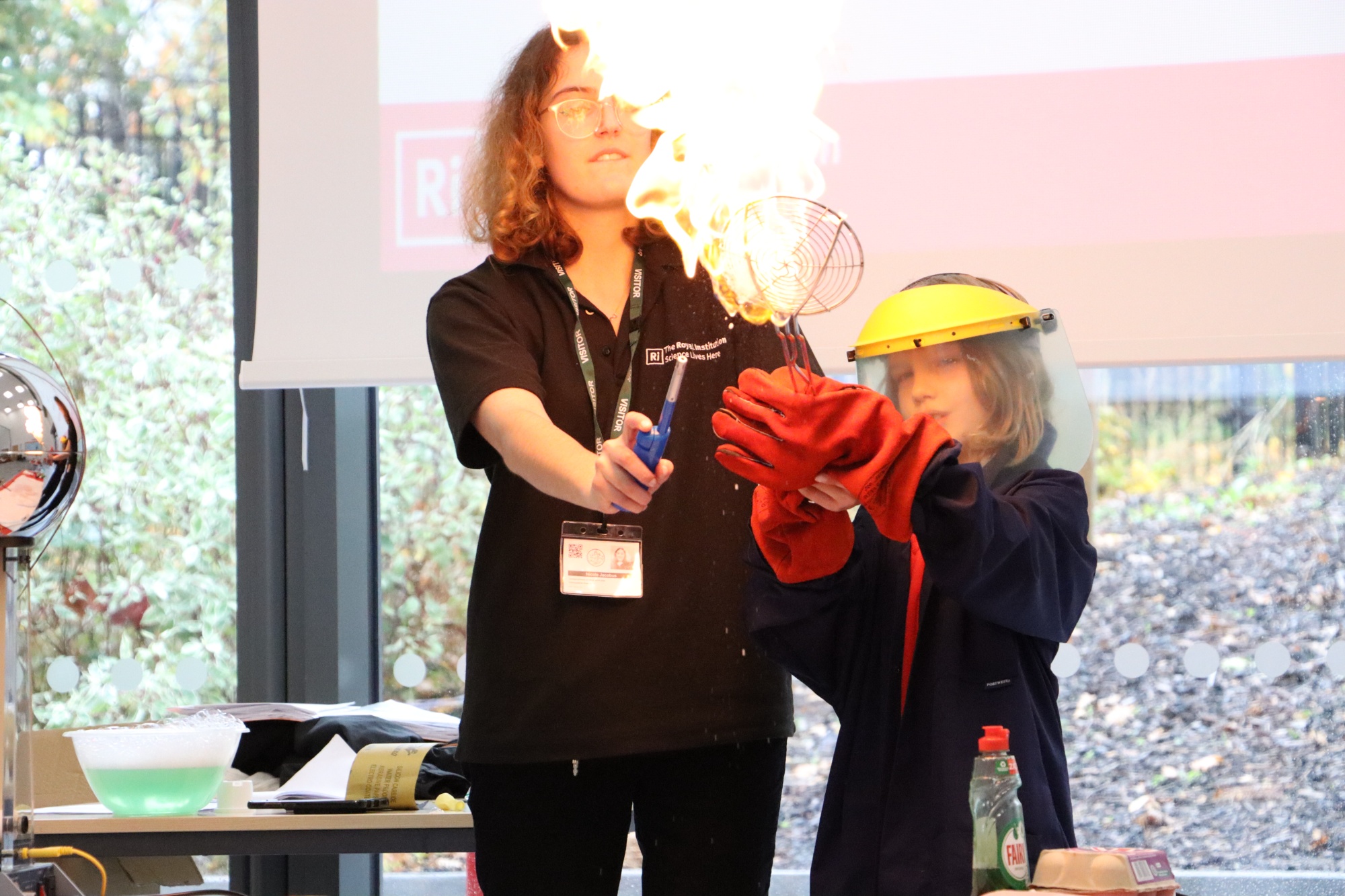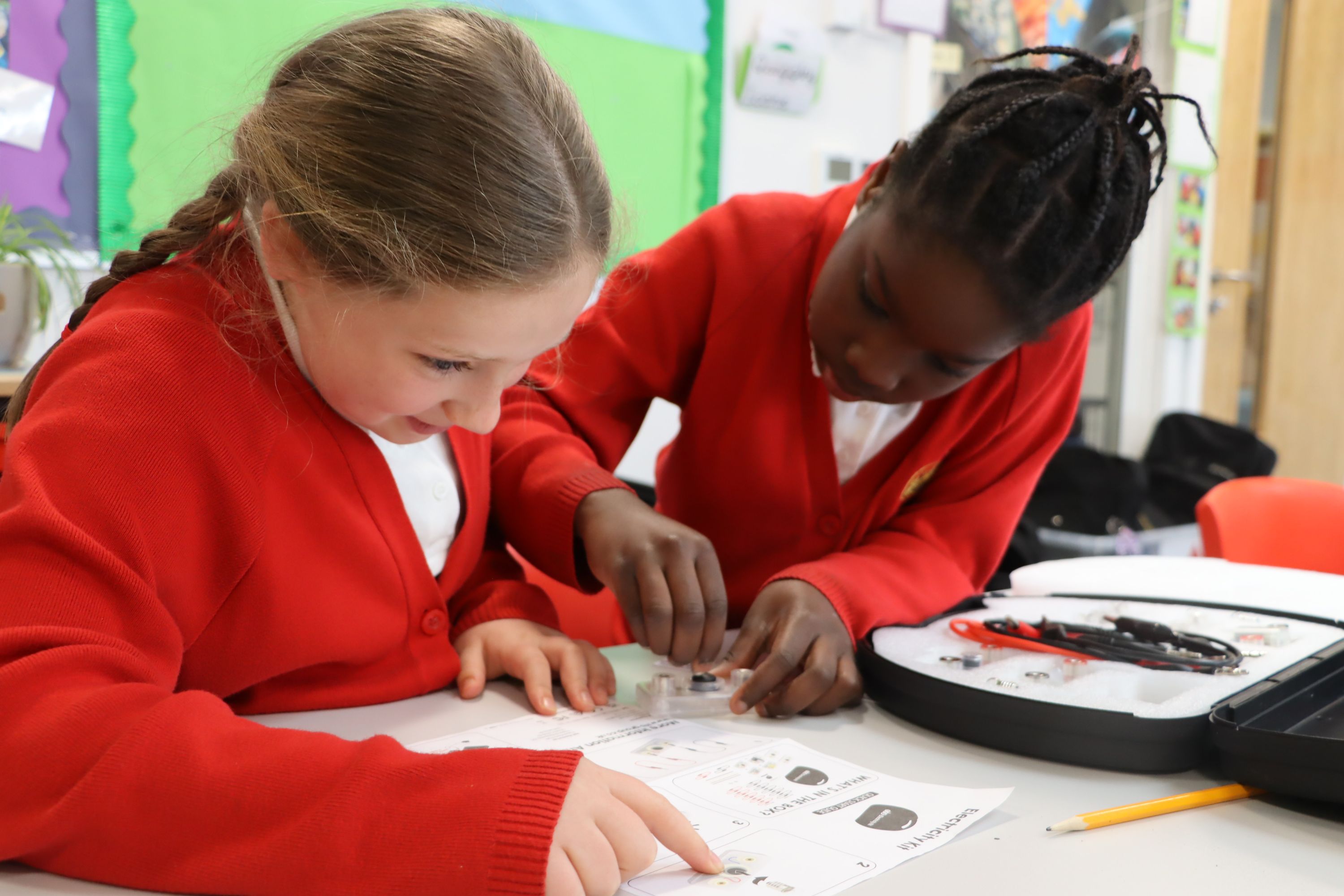Science
Subject Leader: Mr R Ames - amesr@saintgeorgescofe.kent.sch.uk
A high-quality science education such as that provided by ‘Rising Stars Switched on Science’ chosen carefully for the pupils in our school, provides the foundations for understanding the world through the specific disciplines of biology, chemistry and physics. Science changes lives and is vital to the world’s future prosperity, and all pupils are taught essential aspects of the knowledge, methods, processes and uses of science. Through building up a body of key foundational knowledge and concepts, pupils are encouraged to recognise the power of rational explanation and develop a sense of excitement and curiosity about natural phenomena. They are actively encouraged to understand how science can be used to explain what is occurring, predict how things will behave, and analyse causes.
Intent
The current National Curriculum for Science aims to ensure that all children:
Develop scientific knowledge and conceptual understanding through the specific disciplines of biology, chemistry, and physics develop an understanding of the nature, processes, and methods of science through different types of science enquiries that help them to answer scientific questions about the world around them are equipped with the scientific skills required to understand the uses and implications of science, today and for the future. We understand that it is important for lessons to have a skills-based focus, and that the knowledge can be taught through this.
At Saint George’s Primary Phase, we encourage children to be curious about the world around them throughout their time at school and beyond. The Science curriculum fosters a healthy inquisitive nature in children about our universe and promotes respect and empathy for all living things. We believe Science encompasses the acquisition of knowledge, concepts, skills and positive attitudes. Throughout the Rising Stars curriculum and working alongside the Quigley curriculum, the children will acquire and develop key knowledge as well as the application of scientific skills. Working scientifically skills run alongside the scientific knowledge aspects of the curriculum. These skills are developed throughout children’s time at Saint George’s so that they can apply their knowledge of science when using scientific equipment, conducting experiments, building arguments and hypothesises and explaining concepts confidently. Children continue to ask questions and are curious about their surroundings.
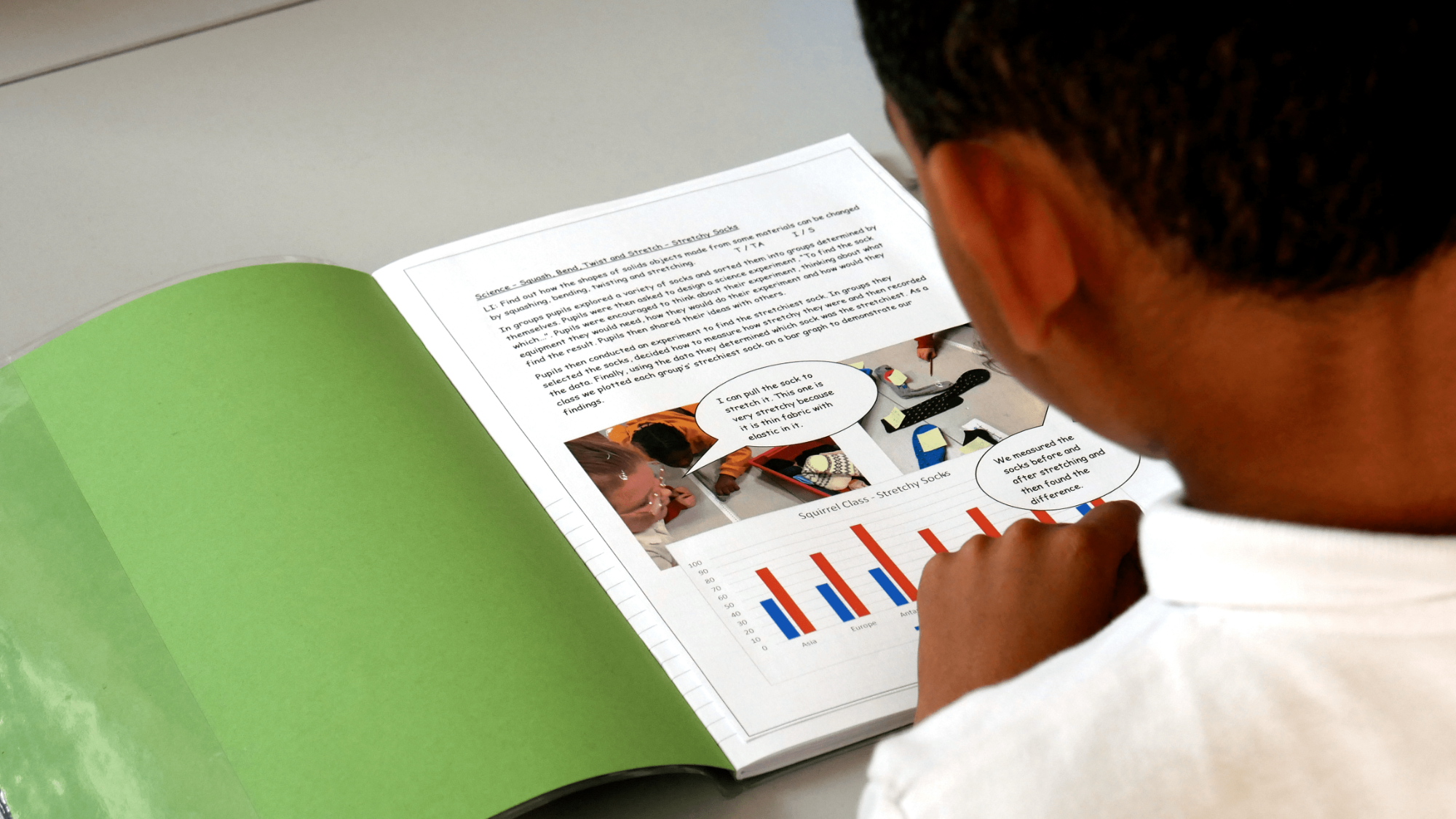
Implementation
Teachers create a positive attitude to science learning within their classrooms and reinforce an expectation that all children can achieve high standards in science. Our whole school approach to the teaching and learning of science involves the following:
- Science will be planned and taught using the Rising Stars curriculum by the class teacher. This strategy enables the repetition of core skills and knowledge leading to a deeper understanding of learning.
- Each programme of study from the National Curriculum is taught in every year group to ensure repetition and mastery. The curriculum topics build on previous learning for each programme of study.
- Through our planning, we involve problem-solving opportunities that allow children to find out for themselves. Children are encouraged to ask their own questions and be given opportunities to use their scientific skills and research to discover the answers. This curiosity is celebrated within the classroom. Planning involves teachers creating engaging lessons. Teachers use precise questioning in class to test conceptual knowledge and skills and assess children regularly to identify those children with gaps in learning so that all children keep up.
- The Rising Stars' curriculum builds upon the learning and skill development of the previous years. As the children’s knowledge and understanding increase, and they become more proficient in selecting, using scientific equipment, collating, and interpreting results, they become increasingly confident in their growing ability to come to conclusions based on real evidence.
- Working Scientifically, skills are embedded into lessons to ensure these skills are being developed throughout the children’s school career and new vocabulary and challenging concepts are introduced through direct teaching. This is developed through the years, in keeping with the topics.
- Teachers demonstrate how to use scientific equipment, and the various Working Scientifically skills in order to embed scientific understanding. Teachers find opportunities to develop children’s understanding of their surroundings by accessing outdoor learning while at Forest School and workshops with experts.
- Children are offered a range of extracurricular activities, visits, and visitors to complement and broaden the curriculum. These are purposeful and link with the knowledge being taught in class.
- During regular events, such as Science Week or project days, all pupils come off-timetable, to provide broader provision and the acquisition and application of knowledge and skills.
Impact
The successful approach at Saint George’s results in an exciting, engaging, high-quality science education that provides children with the foundations and knowledge for understanding the world. Our engagement with the local environment ensures that children learn through varied and first-hand experiences of the world around them. Children develop an understanding that science has the ability to change our lives and that it is vital and necessary to the development of the modern world. Children acquire vital knowledge about the possible careers in science that are available to them through our engagement and application of skills provided by the STEM hub that exists within our trust school. Children at Saint George’s Primary Phase overwhelmingly enjoy the practical and inquisitive aspects of the science curriculum, and this results in motivated learners with sound scientific understanding.
Science in Early Years Foundation Stage (EYFS)
Children have a natural interest in the world around them. A high-quality Science education enables our children to explore and build up an understanding of that world, not only by acquiring knowledge but also through developing the skills required for ‘working scientifically'.
In our school, Science is taught in the EYFS within the Area of Learning called Understanding the World.
In the Early Years Foundation Stage (EYFS) our children will start to gain the scientific knowledge that they will build on throughout their primary school years, such as developing their skills of observation, prediction, critical thinking and discussion. This is done through verbal discussion and lots of practical investigations, to develop their understanding and thinking further.
Science within the EYFS is introduced indirectly through activities that encourage our children to explore, problem-solve, observe, predict, think, make decisions and talk about the world around them.
We use both our indoor and outdoor environments to support the teaching and learning of Science. We are extremely fortunate to have a rich outdoor learning environment which includes our Forest School area. We also have a wonderful outdoor area to support our learning which the children can access daily throughout the year. All these areas are regularly used to develop the children’s Science skills and knowledge of plants, animals and habitats.
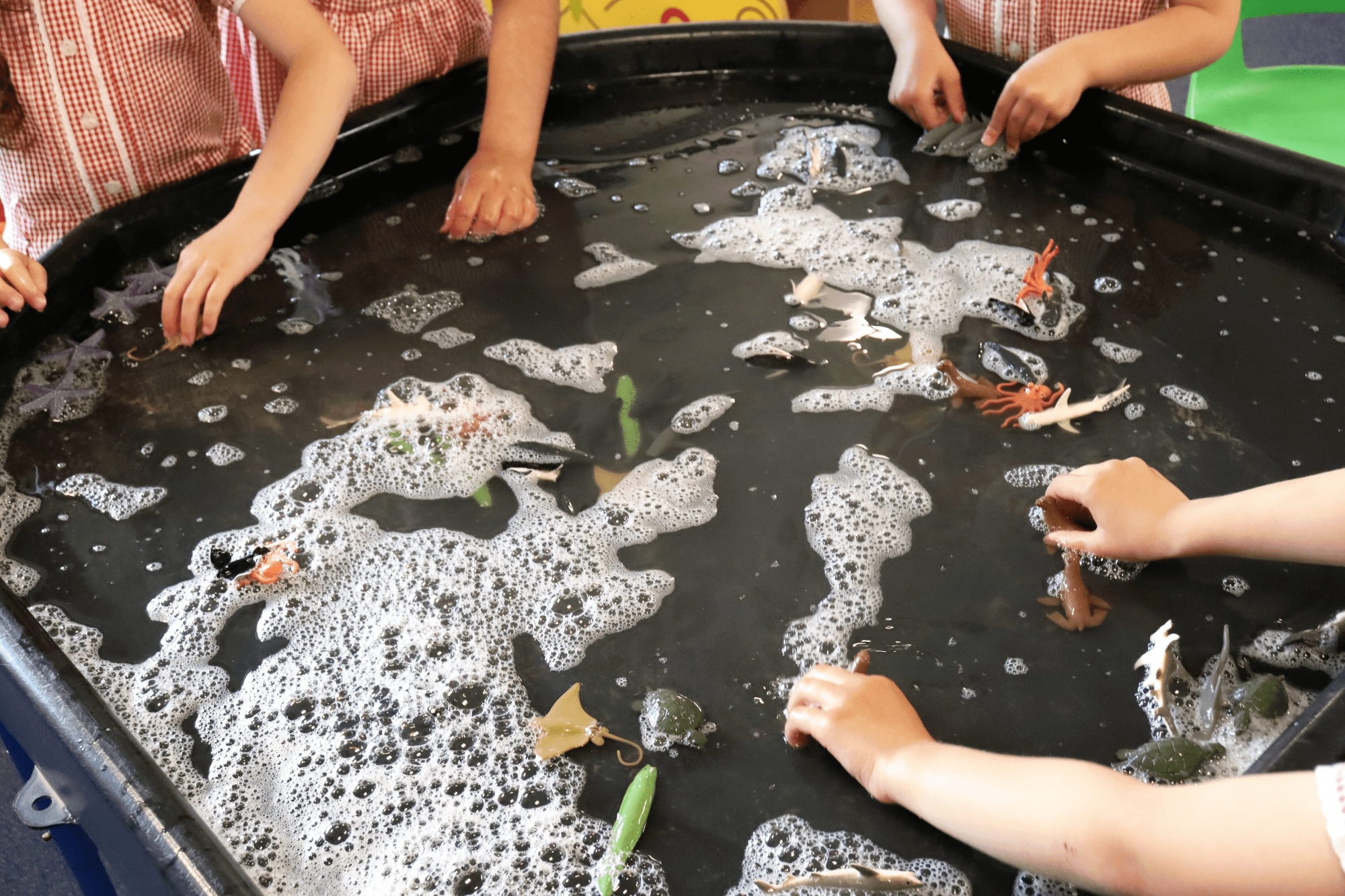
Science in Key Stage 1 (KS1)
The principal focus of science teaching in key stage 1 is to enable pupils to experience and observe phenomena, looking more closely at the natural and humanly-constructed world around them. They are encouraged to be curious and ask questions about what they notice. They are supported to develop their understanding of scientific ideas by using different types of scientific enquiry to answer their own questions, including observing changes over a period of time, noticing patterns, grouping and classifying things, carrying out simple comparative tests, and finding things out using secondary sources of information. Pupils begin to use simple scientific language to talk about what they have found out and communicate their ideas to a range of audiences in a variety of ways. Most of the learning about science is done through the use of first-hand practical experiences, but there is also some use of appropriate secondary sources, such as books, photographs and videos. ‘Working scientifically’ is described separately in the programme of study but is always taught through and clearly related to the teaching of substantive science content in the programme of study. Pupils are expected to read and spell scientific vocabulary at a level consistent with their increasing word reading and spelling knowledge at key stage 1.
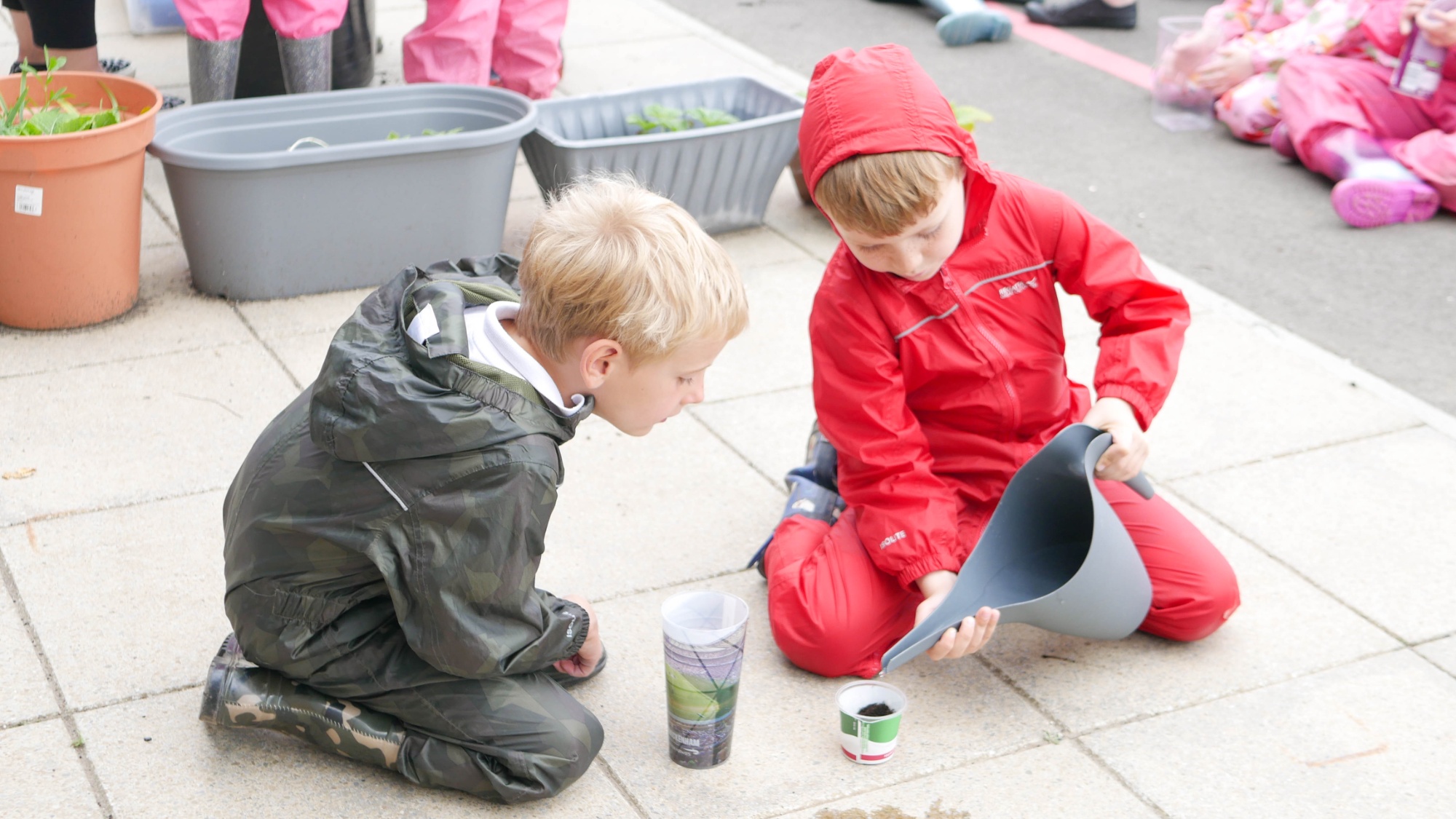
Programme of Study
Year 1
Year 2
| Term | Topic |
|---|---|
| 1 | Who Am I? Animals and Humans. |
| 2 | Celebrations. Everyday Materials. |
| 3 | Polar Places. Everyday Materials Plants, Animals and Humans. |
| 4 | Plants and Animals Where We Live. |
| 5 | On Safari. Everyday Materials, Plants, Animals and Humans. |
| 6 | Holiday (Working Scientific Skills Project). |
| Term | Topic |
|---|---|
| 1 | Healthy Me. Animals and Humans. |
| 2 | Materials Monster. Everyday Materials. |
| 3 | Squash, Bend, Twist and Stretch. Animals and Humans. |
| 4 | Our Local Environments. |
| 5 | Young Gardeners. Living Things and their Habitats and Plants. |
| 6 | Little Master chefs (Working Scientific Skills Project). |
Science in Key Stage 2 (KS2)
The principal focus of science teaching in lower key stage 2 is to enable pupils to broaden their scientific view of the world around them. They do this through exploring, talking about, testing and developing ideas about everyday phenomena and the relationships between living things and familiar environments, and by beginning to develop their ideas about functions, relationships and interactions. They ask their own questions about what they observe and make some decisions about which types of scientific enquiry are likely to be the best ways of answering them, including observing changes over time, noticing patterns, grouping and classifying things, carrying out simple comparative and fair tests and finding things out using secondary sources of information. They draw simple conclusions and use some scientific language, first, to talk about and, later, to write about what they have found out. ‘Working scientifically’ is described separately in the programme of study but is always taught through and clearly related to substantive science content in the programme of study. Pupils are expected to read and spell scientific vocabulary correctly and with confidence, using their growing word reading and spelling knowledge.
The principal focus of science teaching in upper key stage 2 is to enable pupils to develop a deeper understanding of a wide range of scientific ideas. They do this by exploring and talking about their ideas; asking their own questions about scientific phenomena; and analysing functions, relationships and interactions more systematically. At upper key stage 2, pupils encounter more abstract ideas and begin to recognise how these ideas help them to understand and predict how the world operates. They also start to recognise that scientific ideas change and develop over time. They select the most appropriate ways to answer science questions using different types of scientific enquiry, including observing changes over different periods of time, noticing patterns, grouping and classifying things, carrying out comparative and fair tests and finding things out using a wide range of secondary sources of information. Pupils draw conclusions based on their data and observations, use evidence to justify their ideas and use their scientific knowledge and understanding to explain their findings. ‘Working scientifically’ is described separately in the programme of study but is always taught through and clearly related to substantive science content in the programme of study. Pupils are expected to read, spell and pronounce scientific vocabulary correctly.
Programme of Study
Year 3
Year 4
| Term | Topic |
|---|---|
| 1 | Rocks, Soils and Fossils. |
| 2 | Food and Our Bodies. Animals and Humans. |
| 3 | Light and Shadows. |
| 4 | How Does Your Garden Grow? Plants. |
| 5 | Forces and Magnets. |
| 6 | The Nappy Challenge (Working Scientific Skills Project). |
| Term | Topic |
|---|---|
| 1 | What's That Sound? |
| 2 | Living Things and Their Habitats. |
| 3 | Looking at States. The states of Matter. |
| 4 | Teeth and Eating. Animals and Humans. |
| 5 | Power It Up Electricity. Forces and Magnets. |
| 6 | The Big Build (Working Scientific Skills Project). |
Progression
We develop our pupil’s Science understanding through essential skills; growing their depth of knowledge year after year. We are able to monitor their progress and allocate extra support and adaptations to the curriculum for pupils to maintain a strong Science education.
SEND Information
We ensure that SEND and disadvantaged children are given the necessary support in class to fully access the Science Curriculum and equal opportunities are given for all to be confident in approaching any problem within the world around them.

